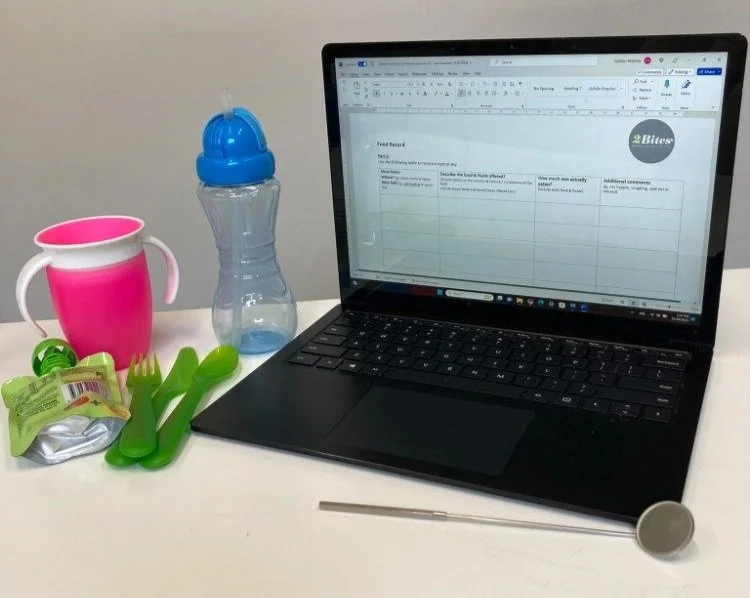Have you been thinking you need some help with your child’s eating for a while, but not sure what an assessment will involve or how it would help?
Here’s the lowdown…
Our initial assessment takes about an hour and can be done at home, in our clinic or via teletherapy. The focus of our assessment is to understand your primary concerns, and to consider all the factors that may be underlying, and impacting on your child’s feeding difficulties. Feeding is more than just food and drink, it’s a huge part of our lives!
As per current best practise, we look at all the ‘domains’ of feeding to figure out the causes of the current problem, so we can help you come up with the best plan to make feeding and family life easier.
We will talk more about these domains in another blog post soon! The key aspects of our assessment include:
Case history
We’ll ask questions about your child’s medical history
We’ll ask what feeding has been like throughout your child’s lifespan, from breast/chest/bottle feeding to the introduction of solids to where they are at today.
We’ll ask what your child eats and drinks across a typical day to get a sense of their nutritional intake – are they getting enough of the nutrients they need each day.
We will look at the food diary we have asked you to fill in, and ask more questions so we can get a sense of the foods your child eats now and where the gaps are
We’ll ask what mealtimes are like for your whole family, and what happens in the lead-up, during, and after meals.
We’ll ask questions about how your child experiences the world through their senses.
We’ll ask about your child’s growth, and we can measure your child’s wieght and height if thi shasn’t been done recently
Oro-motor assessment – we’ll have a look in your child’s mouth and look at how the muscles and structures of their mouth and face move
Observing snack or mealtime - this allows us to assess biting chewing, getting food ready to swallow and swallowing
Next steps
We’ll work on an individualised plan for you and your family, which may involve:
Strategies to support you and your family going forward, and subsequent check-ins to see how things are going.
Setting specific goals you would like to work towards, such as increasing your child’s variety of texture, or reducing stress at meal times. Then we’ll work with you to help achieve these goals.
Therapy sessions, in our clinic or online. We usually work in blocks of 5 sessions, to set you on the right path, and to give you the tools to keep working towards your family’s goals
Our sessions are tailored to you and your family’s unique needs. We are happy to answer any more questions you might have. Or if you are ready to book an assessment, drop us a line!

